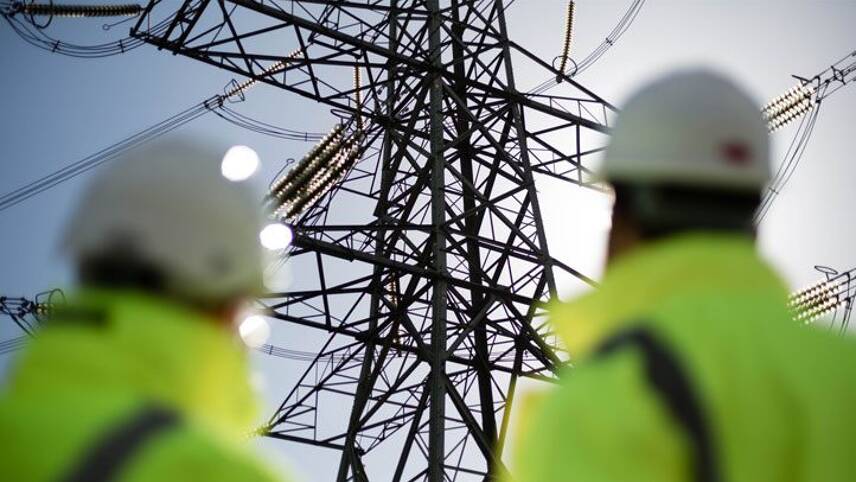Register for free and continue reading
Join our growing army of changemakers and get unlimited access to our premium content

Image: National Grid
National Grid has forged a partnership with SSE’s Energy Solutions arm to explore how to capture the heat generated by the transformers and redirect it into district heating networks. National Grid owns the transformers while SSE operates a string of district heating network projects across the UK. In total, SSE manages 18 heating and cooling networks, collectively serving more than 10,500 people.
The solution is currently undergoing a proof-of-concept trial at National Grid’s Deeside Centre for Innovation in Wales, described as “the first facility in Europe where assets associated with electricity networks can be tested off-grid, 24 hours a day, seven days a week”.
Once trials are complete, the solution could be implemented at up to 350 substations across the UK.
It has been estimated that heat recovered in this way will deliver a 40% reduction in carbon emissions for heat networks, compared to traditional gas-led systems. An even steeper reduction could be delivered if the technology is applied to transformers served by 100% renewable electricity; SSE and National Grid are exploring whether this could be called a net-zero heating approach.
“By their very nature, electricity transformers are primarily located where people live, work and consume energy, meaning that they have the potential to be incredibly valuable community assets if we apply a bit of clever thinking,” SSE Energy Solutions’ managing director Nathan Sanders said.
“This groundbreaking project aims to capture that waste heat and effectively turn transformers into community ‘boilers’ that serve local heat networks with a low-carbon or even zero-carbon alternative to fossil-fuel powered heat sources such as gas boilers. We see heat networks as a key part of the UK’s future low carbon energy infrastructure, enabling us to exploit waste heat sources and use these to heat homes and businesses across the country.”
National Grid’s innovation manager Alexander Yanushkevich added: “Together with SSE, National Grid is a Principal Partner of COP26, and projects like these are a great example of how, taking a whole system approach, the UK can lead the way in helping accelerate decarbonisation.”
National Grid is notably working towards a 2050 net-zero target and last year had interim decarbonisation targets approved by the Science-Based Targets Initiative (SBTi), in line with its ‘well below 2C’ pathway. The SBTi has since announced plans to urge all businesses with ‘well below 2C’ targets to update them in line with a 1.5C pathway by 2025.
SSE is also working towards net-zero by 2050 at the latest. It is planning to invest £7.5bn in decarbonisation by 2025, starting with a £2bn investment package this financial year.
Low-carbon heat
The announcement comes as the UK continues to await the publication of the delayed Heat and Buildings Strategy.
Publication is expected this autumn, ahead of COP26, following a string of delays. The Government attributed the initial delays to Covid-19 and the need to combine what were originally two Strategies into one. But, in recent weeks, it has been reported that Conservative Party MPs have been rowing over the specific design of the ‘carrot and stick’ policies designed to decarbonise domestic heating.
Specifically, some MPs are reportedly pushing for a ban on gas boilers in homes to be pushed back to 2040 from 2035 – the date recommended by the Government’s own advisors, the Climate Change Committee (CCC).
According to the CCC, direct emissions from buildings accounted for 17% of the UK’s annual national emissions footprint in 2019. Tackling these emissions, the Committee has stated, will be vital for the UK to meet its long-term climate targets.
It is hoped that the Heat and Buildings Strategy will provide clarity on the direction of travel in terms of technology solutions such as district heat networks, heat pumps and hydrogen in the coming decades.
Learn more about low-carbon heating with edie’s Masters series
Earlier this year, edie and Centrica Business Solutions collaborated to deliver a Masters series on low-carbon heat, exploring the practical considerations for businesses of all sizes and sectors in various formats.
The first component of the series is a free edie-explains guide on the topic, which is available to download here, answering FAQs and spotlighting case studies.
Also included in the series are a 45-minute Masterclass webinar, which can be accessed on-demand for free; a short downloadable report, summarising the webinar’s key talking points; and an episode of edie’s Net-Zero Business podcast, featuring exclusive interviews with the Heat Pump Federation’s director for growth and external affairs Bean Beanland and Centrica Business Solutions’ business development manager for heat pump solutions Michael Firth.
Sarah George


Please login or Register to leave a comment.